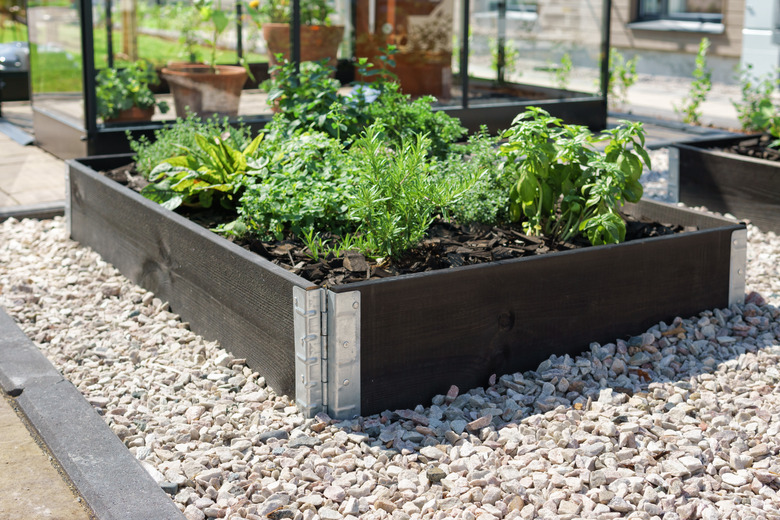Eco-Safe Ways To Seal Raised Beds
We may receive a commission on purchases made from links.
Building a raised garden bed creates an interesting dilemma: If you use pressure-treated wood or commercial wood sealers, you risk having unwanted chemicals leak into the environment and into your garden produce. But if you skip the sealer or preservative, your raised bed may not last long. Fortunately, there are ecologically friendly alternatives that help preserve raised bed wood.
Soy and Whey Sealers
Soy and Whey Sealers
Conventional commercial wood sealers are made with a petroleum base that may release volatile organic compounds (VOCs) into the air and your garden soil. Eco-friendly, soy oil-based wood treatments are definitely worth a try.
Brands you can find in commerce include SoySeal and Soy Guard, which have low or no VOCs. Another alternative environmentally friendly formulation based on whey protein is available from Vermont Natural Coatings. Like any wood sealer, these eco-safe products need replacing every two to three years. Consider just recoating the outer side of your raised bed boards as a compromise to help preserve the wood while not disturbing your raised bed soil structure.
Paint and Traditional Sealers
Paint and Traditional Sealers
Modern exterior latex paint seals wood without harmful chemicals that can leach into the soil, as were present in old lead paints. Numerous brands of low-VOC, eco-friendly paint are now on the market.
Linseed oil was the wood preservative of choice for exterior applications before modern synthetic sealers were developed. Raw linseed oil — unlike boiled linseed oil which contains potentially toxic additives — is still an option for an eco-safe raised bed treatment, but it can take weeks or months to thoroughly dry.
Since you don't touch your raised bed boards very often, the permanently tacky surface raw linseed oil causes may not be a problem for you. Mineral oil is another traditional wood sealer. Although mineral oil is petroleum-based, it is considered food-safe and often used to season wood on salad bowls and butcher blocks.
For an effective, homemade eco-safe preservative, melt beeswax over a double boiler; then add approximately the same volume of mineral oil and mix well. Paint the mixture onto the raised garden-bed boards. Allow the moisture to soak in for several hours in a full-sun location before applying a second coat.
Alternative Woods and Wood Alternatives
Alternative Woods and Wood Alternatives
Some woods weather better than others. In fact, several types of wood offer an eco-safe alternative for raised bed construction even without adding any preservatives. These include cedar, redwood, and hard fir. Adding an environmentally friendly wood treatment is not necessary but may enhance the staying power of these boards.
Another green alternative is to use materials other than wood for raised bed construction. This also avoids the issue of sealants. Stone, brick, or "boards" made from recycled plastic are all long-lasting raised bed construction materials that do not require sealing.
